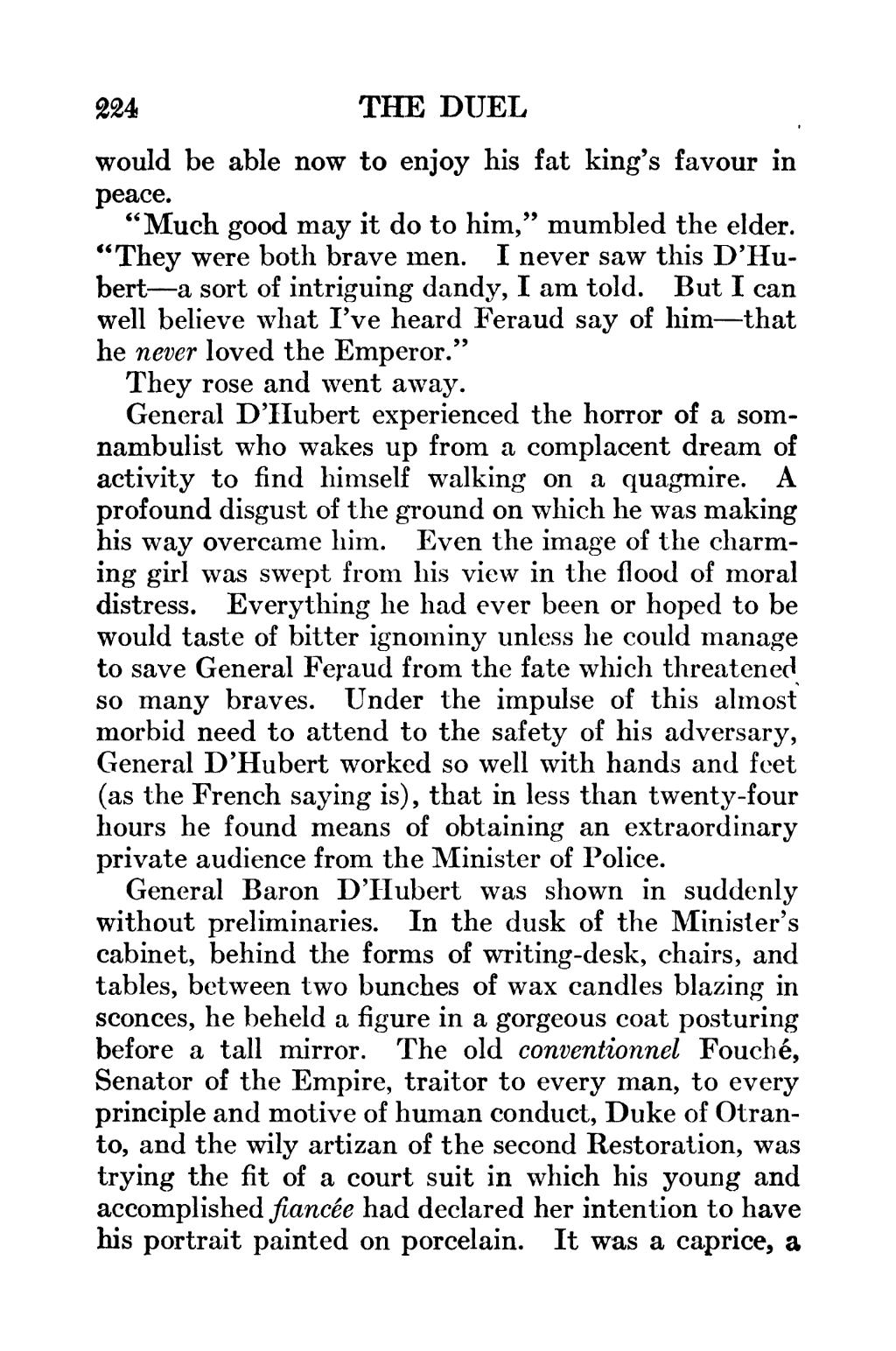would be able now to enjoy his fat king's favour in peace.
"Much good may it do to him," mumbled the elder. "They were both brave men. I never saw this D'Hubert—a sort of intriguing dandy, I am told. But I can well believe what I've heard Feraud say of him that he never loved the Emperor."
They rose and went away.
General D'Hubert experienced the horror of a somnambulist who wakes up from a complacent dream of activity to find himself walking on a quagmire. A profound disgust of the ground on which he was making his way overcame him. Even the image of the charming girl was swept from his view in the flood of moral distress. Everything he had ever been or hoped to be would taste of bitter ignominy unless he could manage to save General Fepaud from the fate which threatened so many braves. Under the impulse of this almost morbid need to attend to the safety of his adversary, General D'Hubert worked so well with hands and feet (as the French saying is), that in less than twenty-four hours he found means of obtaining an extraordinary private audience from the Minister of Police.
General Baron D'Hubert was shown in suddenly without preliminaries. In the dusk of the Minister's cabinet, behind the forms of writing-desk, chairs, and tables, between two bunches of wax candles blazing in sconces, he beheld a figure in a gorgeous coat posturing before a tall mirror. The old conventionnel Fouché, Senator of the Empire, traitor to every man, to every principle and motive of human conduct, Duke of Otranto, and the wily artizan of the second Restoration, was trying the fit of a court suit in which his young and accomplished fianceé had declared her intention to have his portrait painted on porcelain. It was a caprice, a
